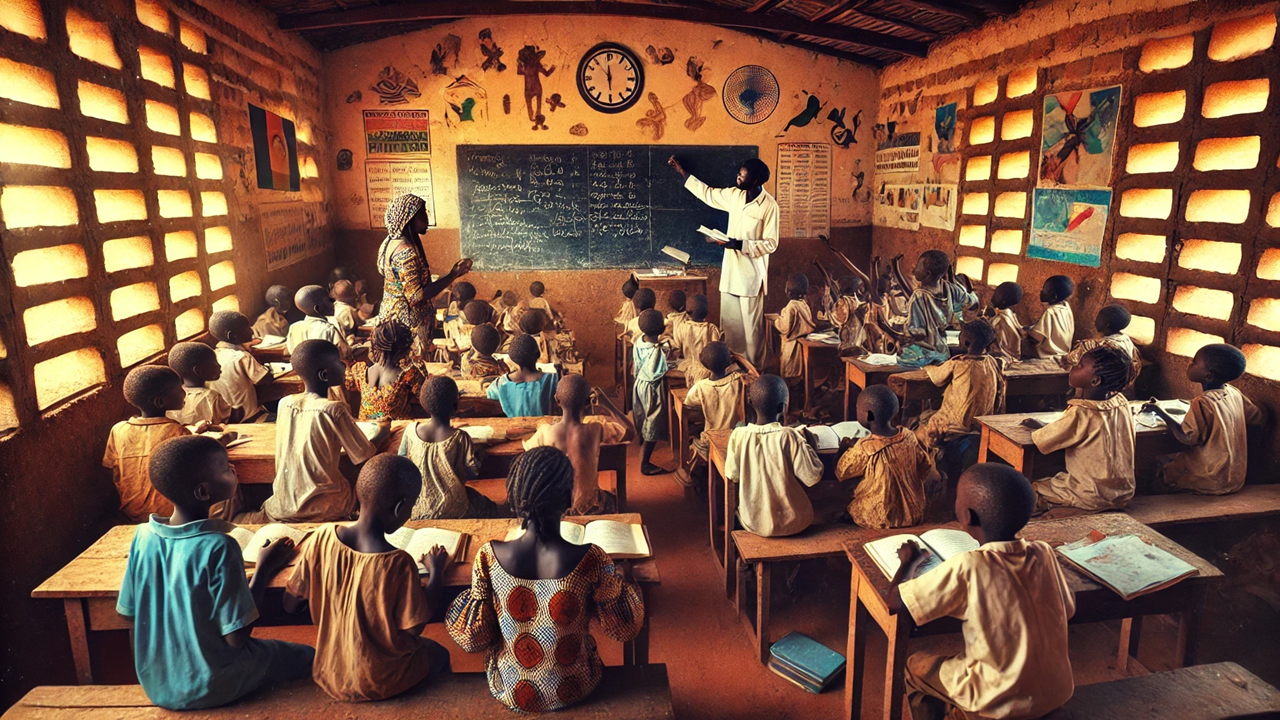Burkina Faso's Battle Against Poverty and Inequality: Progress and Persistent Challenges
Burkina Faso's efforts to reduce poverty and inequality have shown significant progress despite numerous challenges. The report by UNCTAD highlights improvements in education, health, and gender equality, but stresses the need for ongoing efforts to overcome internal and external obstacles. Continued investment in human capital and infrastructure is essential for sustained progress.

In a bid to meet the Sustainable Development Goals (SDGs), Burkina Faso has embarked on a series of ambitious policies and action plans aimed at eliminating extreme poverty, reducing inequalities, and protecting the environment. According to a report by the United Nations Conference on Trade and Development (UNCTAD), titled "Reducing Poverty and Inequality in Burkina Faso: Analyses and Policy Options," these initiatives have yielded significant progress despite considerable challenges. Here’s a closer look at the country’s journey towards sustainable development and social equity.
Building Blocks of Progress
The backbone of Burkina Faso's recent development efforts is rooted in the National Economic and Social Development Plan (PNDES 2016-2020) and the National Development Framework (RND 2021-2025). These frameworks have guided the country in addressing key areas such as education, health, gender equality, youth employment, and social protection.
In education, the "Education for All" initiative and the Ten-Year Basic Education Development Plan have significantly improved access and quality. Schools are now better equipped, and vocational training programs have expanded, fostering a more skilled workforce. Gender promotion in schools has also seen advancements, encouraging a more inclusive educational environment.
The health sector has benefited from universal healthcare coverage and the establishment of district health systems. These measures have enhanced the performance, quality, and usage of health services, with notable improvements in epidemic prevention, clean water access, and sanitation. The COVID-19 pandemic, however, has posed new challenges, necessitating adaptive strategies to maintain these gains.
The Ongoing Struggle for Equality
Despite these strides, the report acknowledges that Burkina Faso's journey towards poverty reduction and equality is fraught with challenges. The security crisis, structural economic issues, low production capacity, and socio-political crises are major internal obstacles. Externally, the global economic downturn and the adverse effects of economic globalization, exacerbated by the COVID-19 pandemic, have further complicated matters.
Gender equality, while progressing, still has a long way to go, especially in high-level positions. Women remain underrepresented in ministerial roles, CEO positions, and other top-tier leadership spots. Continuous awareness-raising and incentive measures are crucial to closing this gap.
Economic and Social Policies: A Mixed Bag
The historical context of Burkina Faso’s poverty and inequality reduction policies reveals a mix of successes and ongoing challenges. Since the 1990s, various fiscal, employment, urban development, agrarian, and food security policies have been implemented. These have collectively contributed to economic growth and poverty reduction but have not completely eradicated these issues.
The report highlights that economic growth alone is not enough; equitable distribution of wealth is essential. Policies must ensure that the benefits of growth reach the poorest segments of the population. For example, fiscal reforms aimed at better tax collection and performance indicators have shown promise, yet the need for a more progressive taxation system remains.
Employment policies focusing on decent work for all, including women and the disabled, have led to some job creation. However, the informal sector's dominance means many workers remain outside formal protection schemes. Social policies have targeted education, health, and gender, making notable impacts, but the pandemic has threatened these advancements.
COVID-19: A Setback and a Catalyst
The pandemic has been a double-edged sword for Burkina Faso. On one hand, it has significantly hindered economic growth, reduced tax revenues, and increased budget deficits. On the other, it has highlighted the importance of resilient health systems and the need for robust social safety nets.
The government's response has included emergency measures to support the most vulnerable populations. These efforts are crucial in preventing the backsliding of progress in poverty reduction and inequality. Moving forward, sustained investment in human capital and infrastructure is vital.
Future Directions
The UNCTAD report concludes with a call for ongoing efforts to address both internal and external challenges. Securing financial resources, improving production capacities, and ensuring political and security stability are fundamental for Burkina Faso's continued progress. The report underscores that while the path is difficult, the progress made provides a strong foundation for future advancements.
- FIRST PUBLISHED IN:
- Devdiscourse
ALSO READ
Alphabet's Next Big Bet: AI in Online Search and Healthcare
Gisborne Hospital Unveils New Acute Mental Health Unit: Te Whare Awhi Ora
Iwi Māori Partnership Boards Deliver 15 Community Health Plans to Govt
Court Blocks Dreamers' Health Coverage in 19 States
Health News Roundup: Record Dengue Outbreak, Food Companies in Hot Water, Pandemic Treaty Progress










